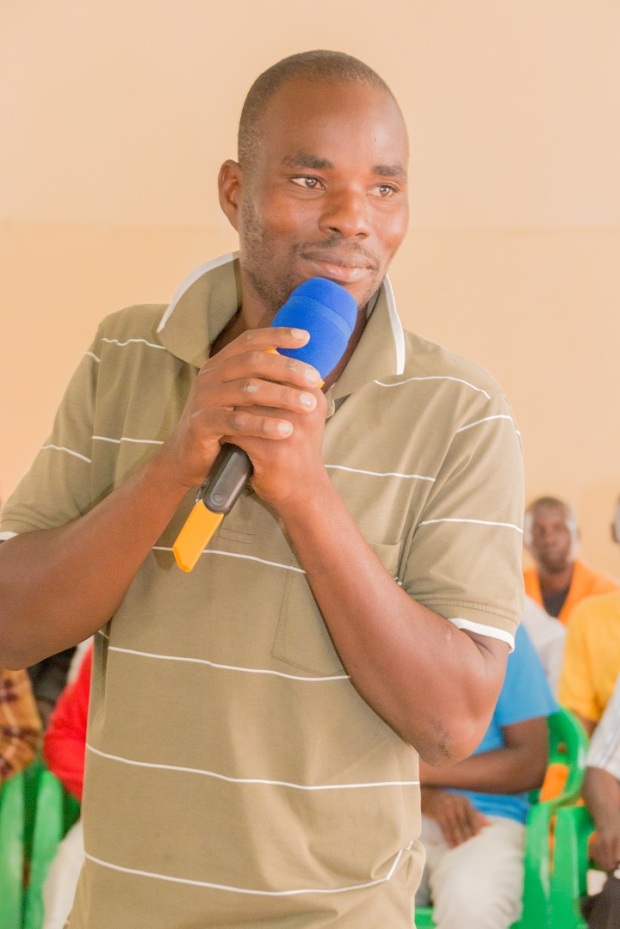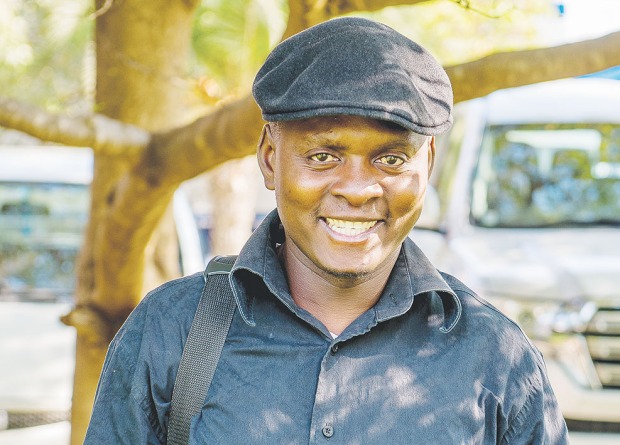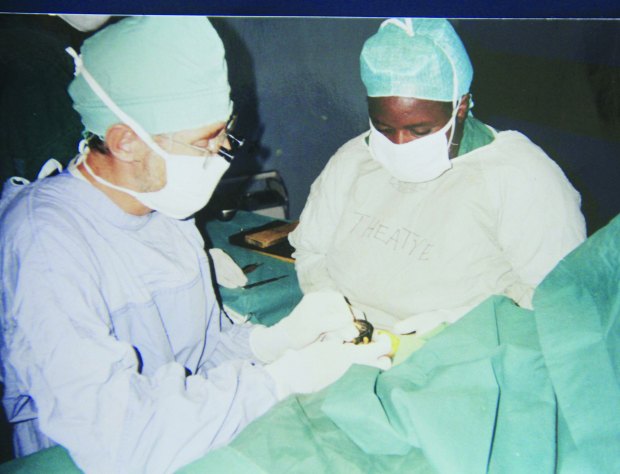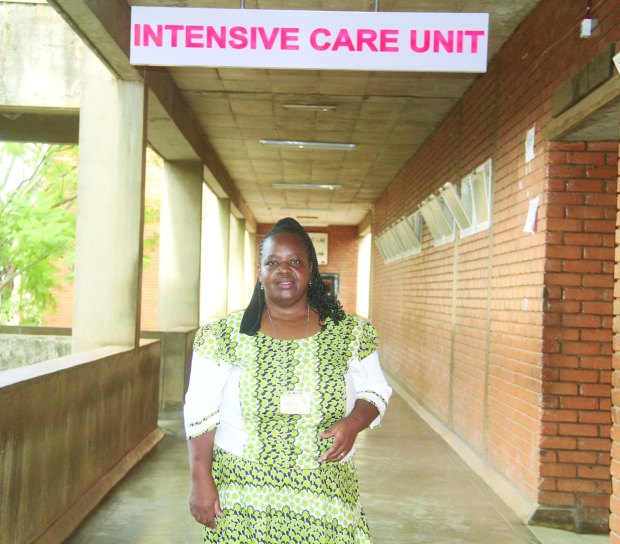NKOLE NKOLE
Lusaka

ON REGULAR days, the Mwembeshi Maximum Correctional Facility chapel is accessed by inmates who want to spend some quiet, reflective time with God.
It is an escape from the daily routine that characterises prison life for the inmates serving maximum penalties behind the facility’s towering walls.
The chapel is also used on special occasions when the inmates welcome visitors from outside.
Today, the chapel has come alive because some inmates will get the chance to perform poetry in front of a special guest. It is something to momentarily help them forget that they are trapped behind walls. The inmates will, after all, do anything to pass the time while serving time.
To commemorate World Poetry Day 2018, the facility hosted a poetry workshop organised by the United Nations Educational Scientific and Cultural Organisation (UNESCO), in collaboration with the National Arts Council (NAC), which trained inmates in the creative art of poetry and that has culminated into the poetry show about to take place.
For a few hours, those serving sentences for murder, manslaughter, aggravated robbery, fraud, rape and defilement assemble in the chapel, giddy with excitement like children about to perform before an audience.
The inmates have reason to be excited, not only because they will be performing their poetry for the first time after spending days learning the art but more so because the poetry has provided an outlet for them to express the emotions they inwardly battle with.
The chosen theme for the 2018 World Poetry Day is “The voice inside” which aptly describes the emotional release that is part of the process of rehabilitation for inmates through poetic expression.
When all the inmates have settled down, assistant superintendent Cornelius Mwale begins calling out the names of those scheduled to perform their individual pieces.
The first performer, Dauzeni Mwale, saunters up to the podium to deliver a piece in Bemba called “Pano Pa Mushi”. It is a poem coloured with humour that cheers his fellow inmates as it dwells on the lighter side of prison life.
Moffat Nkhoma walks up to the stage with a paper in hand, upon which his chilling and deeply reflective poem is written.
He admits that he is not a good writer but can at least talk because the first thing he produced at birth was a cry.
“Bang! Bang! Bang! Silence in Court!” his piece begins, attracting the full attention of the audience. “The only sound I heard was papers flipping and on the back of my head came a Bemba adage which says, ‘Umusuku ubi utukishe mpanga’.”
Moffat goes on to describe how finding himself in the wrong company has cost him dearly by landing him in prison for aggravated robbery and murder.
He says regretting his crimes is foolishness for him but shares his wish to re-enter his mother’s womb and make amends for the hurt he has caused her and stitch the bleeding scars and wounds.
“Every night in my dormitory I see the walls pointing at me, saying, ‘Shame on you Moffat, your mom bleeds’.”
Despite his open shame for the pain he has caused his family, he says correctional officers have helped him realise his true potential in life.
Assistant superintendent Mwale worked closely with the inmates to show them how poetry can be used as a form of emotional release and healing.
“It’s through the poetry workshop that we have seen that when one is in prison, we do not lock their minds. Their minds stay open to art, to writing and various types of healing and it is during this process of healing, correction and rehabilitation that these inmates have decided to write and show their guests what they learnt in the one-week workshop,” Mr Mwale says.
Phineas Njobvu learnt to speak English while in prison. He also learnt to paint in prison to keep him preoccupied despite having no brushes and no paint.
He first stepped into Mwembeshi Maximum Correctional Facility in 2008 as a prisoner on death row who could hardly speak a word in English.
“I was a taxi driver outside and I committed aggravated robbery and murder. I was sentenced to death in 2008 and I spent six years on death row,” Phineas shared before the crowd while simultaneously explaining the thought process behind different paintings he had drawn in prison.
One particular painting depicted a herd of elephants walking together peacefully which he said reflected the calm in their natural environment.
Phineas joined the facility’s school beginning in the second grade and went all the way up to grade eight which helped him improve his English.
He came to realise that his time in prison was not necessarily wasted time because he was learning and doing valuable things.
In 2013, his sentence was commuted to life imprisonment and then later on it was commuted further to 25 years.
Zambia Correctional Service (ZCS) commissioner Tobias Mwanza said the poetry workshop was timely in view of the transition in the prison system from Zambia Prisons Service to ZCS.
Programmes like the poetry workshop are essential because they hinge on the correctional philosophy which proposes that inmates are regarded and treated as equal human beings, Mr Mwanza says.
UNESCO director general Audrey Azoulay says poetry is not limited to the artistic aspect but is also a tool for both formal and informal communication.
“This is why UNESCO encourages and supports artistic education since it strengthens intellectual, emotional and psychological development, shaping generations that are more well rounded and capable of reinventing the world,” Ms Azoulay says.
Before the poetry and arts show closes, ZCS commissioner general Percy Chato, makes a brief appearance. He is the guest the inmates were expecting and has come at the tail end of the programme. Upon the special request of the inmates, he hears a repeat of some pieces.
Dauzeni returns to the stage to share his three poems again but it is the words of his piece called Mwembeshi Maximum, which he delivers passionately, that resonates with all the inmates.
He begins: “Year after year I sit and watch with a hawkish eye over these men that once used to be mighty men but are now fallen like Lucifer. Their faces are ashen like the soot from coal. They wander aimlessly. I marvel at their state of confusion because I watch. Yes, this is what I do. I watch and observe. I keep murderers, now murdered. I keep rapists, now the raped. I keep defilers, now the defiled. I feed them but it’s not enough. Like a swarm of locusts they descend on me, plundering every bit of a crumb. Just like a river that bursts its banks I offload them yearly yet I immediately consume them because my thirst is unquenchable. Desolate oblivion in their eyes. I am built on four pillars and I stand tall and mighty. Yes, I am Mwembeshi Maximum Prison.”
Dauzeni bows after his performance and his fellow inmates applaud. The show is soon over, the guests leave and the inmates stay staring at the prison’s mocking walls. The walls stare back.


